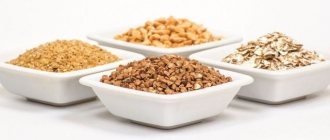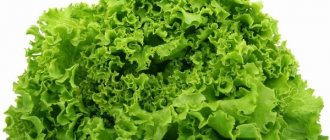Benefits and harms
Like other fruits, tangerines contain many vitamins and nutrients. The leader in quantitative ratio is vitamin C. One tangerine contains slightly less than the daily requirement. There are microelements - magnesium and calcium. Smaller quantities contain vitamins P, D, A, K. All these substances stimulate the functioning of the gastrointestinal tract. Therefore, citrus fruits are beneficial for dogs who have lost their appetite.
Tangerines will maintain a high level of immune defense for your pet’s body in winter.
Scientists have found that in some dogs, physical activity and stress lead to a deficiency of vitamin C, and tangerine can easily replenish its supply.
Veterinarians' opinions on the usefulness of the fruit are divided. Citrus fruits contain citric acid. Some doctors believe that in excess quantities it severely depresses the nervous system and causes stomach upset.
Others believe that this substance has no effect on dogs, and that lemon juice, on the contrary, is beneficial. In their opinion, the main harm from tangerines comes from sucrose. It is a source of stomach problems and a major allergen.
It is also worth considering that before transporting to Russia, many fruits in distant countries are treated with toxic substances. They do this to preserve their presentation.
The longer the citrus is in transit, the more toxins penetrate it. They do not pose a serious danger, but they may well contribute to an upset stomach of the dog.
Citrus fruits for dogs - benefits and harm
In general, none of the fruits that can be purchased on the market today, including the most exotic ones, contain substances that have a negative effect on the animal’s body. The same vitamin C, which, according to some owners, can cause an allergy attack when taken in excess, is easily excreted by the kidneys and liver. Many also believe that the sweetness contained in fruits can affect digestion and worsen dental health, but it is worth noting that natural fructose in moderation is absolutely safe for animals.
Veterinarians recommend giving your dog some citrus fruits in reasonable quantities, especially in the winter. Also, a little fruit is useful for stimulating digestion during periods of loss of appetite. The amount must be calculated based on the body weight of the animal. Small dogs can be given no more than 1 teaspoon (a slice of orange, tangerine). Otherwise, the pet risks developing an allergic reaction. For medium breeds of dogs the amount can be doubled and, accordingly, for large breeds – tripled.
How often can you give
Pampering your pet with tangerines is allowed, strictly following the recommended dosage. It is different for dogs of different ages.
Pregnant and lactating
Dog owners often note that with the onset of pregnancy, the taste preferences of their pets change. Even those who have not previously been “fascinated” by fruits begin to “go crazy” when they see a tangerine.
But you shouldn’t blindly indulge all the weaknesses of a pregnant dog. Firstly, in this condition, pets have an increased risk of developing allergies. The same applies to lactating bitches. Secondly, even if the expectant mother does not have any negative reactions to tangerines, the allergy may subsequently appear in puppies.
Therefore, pregnant dogs should not eat citrus fruits. It is better to replace them with an apple. But, if the dog begs too persistently for a tangerine, limit yourself to one slice no more than once every few days.
For puppies
Puppies have very delicate digestion, so you should not feed them citrus fruits until they are seven or eight months old. Upon reaching this age, you can give one slice to try. Then watch the puppy carefully.
If no undesirable effects appear within two to three days, then you can treat your baby to tangerine from time to time. However, you still shouldn’t get carried away.
For adults
In the absence of undesirable reactions, adult dogs are given no more than two to three slices per day. In this case, the owner must control the pet’s reaction to the product.
Elderly
As pets get older, they often have stomach problems, so giving citrus fruits to an older dog is not recommended. Lemons, oranges, tangerines will irritate the intestines. In case of a lack of vitamins, it is better to add additional complexes in tablets.
Can dogs have tangerines?
The opinions of veterinarians are radically different: some experts are categorically against the inclusion of citrus fruits in the diet of four-legged pets, others believe that orange fruits can be given to dogs, but in limited quantities. Each group of specialists is right in its own way.
There are several arguments against:
- The first reason is that in nature wild dogs do not receive an analogue of citrus fruits; this type of food is not included in the list of types of food that animals cannot do without.
- The second reason. The individual reaction of the body to exotic fruits, which contain many bioactive substances and organic acids. The owner cannot predict whether there will be health problems after receiving citrus fruits or not, regardless of the amount of fruit eaten.
- Third reason. With high sensitivity of the digestive tract, diarrhea, vomiting are possible, and the body reacts with allergic manifestations on the skin.
- Fourth reason. Many dogs enjoy the taste of oranges, tangerines and other citrus fruits. Once they receive a treat, the animals begin to beg for another piece as the family eats the fragrant fruit. Looking into the sad eyes of a pet begging for another slice, it’s easy to forget about the sense of proportion and overfeed the “dear beggar.” It's even worse when the dog steals citrus fruits left on the plate from the table. The consequences of excessive intake of exotic fruits can be severe: allergies, digestive problems, excessive stress on the kidneys and liver.
Learn about the early signs and symptoms of hypothyroidism in dogs, as well as how to treat hormonal imbalance.
An overview of the flavors and variety of Bosch Soft ready-made food lines for small breed dogs can be seen in this article.
Arguments for",:
- There are no harmful components in citrus fruits.
- Juicy fruits contain a large amount of vitamins, flavonoids, organic acids, water, dietary fiber, potassium, sodium, magnesium, phosphorus.
- Eating small amounts of citrus fruits has a positive effect on the immune system.
Before introducing tangerines, oranges and other juicy fruits into the diet, you need to consult a veterinarian to clarify the dog’s health status. If the doctor is categorically against receiving exotic names, then the ban cannot be violated. If there are any abnormalities in the functioning of the digestive tract, a tendency to allergies, damage to the kidneys, liver, or other diseases, you will have to give up citrus fruits for your pet. There is no need to worry about this: there are quite a lot of fruits, vegetables and berries that can be given to a dog without fear for the animal’s health.
Which fruits are best to protect your dog from?
Some fruits, which are very beneficial for humans, are contraindicated for pets:
- It is not recommended to pamper dogs with citrus fruits, as such fruits can have a laxative effect, disrupt the digestive tract, cause vomiting and poisoning. However, some dog breeders introduce tangerines or oranges into their pet’s diet and do not observe the negative signs described above. Whether it is possible to pamper your pet with citrus fruits must be decided by the owner himself, but it is worth noting that the same vitamins are contained in a legal apple, so if you do not want to test the strength of your pet’s body, especially its liver, then it is better to pamper your faithful and furry friend with a healthy fruit.
- Excessive consumption of grapes of any variety can cause kidney failure in a dog, so you should not spoil your pet with this fruit.
- Taking into account the advice of veterinarians, a dog’s diet should not include pomegranate, which is healthy for humans, at all, since this fruit contains strong acids that will negatively affect the functioning of the animal’s digestive tract.
It is imperative to understand that any fruit is not a natural food for animals, so it is not worth introducing them into the diet often, even if the dog persistently begs for this delicacy.
Taking into account the above recommendations, each owner will be able to pamper his pet with exactly those sources of fiber and vitamins that the animal needs for full development, and they, in turn, will give all household members positive emotions and a lot of positivity.
Why can't you give?
Due to the high acid content, this treat can behave quite aggressively in the stomach environment, causing heartburn and discomfort in dogs with a sensitive digestive tract.
Citrus fruits are also often allergens. It is worth noting that, as a rule, in order to cause an allergic reaction, you need to eat about a kilogram of fruit at a time.
A generally safe and healthy amount is considered to be one tangerine slice for small breed dogs, two slices for medium breeds and three slices for large breeds per day.
But, since citrus fruits are rarely included in the natural food of canines, it is necessary to check for individual intolerance. To do this, a small piece is given and within 48 hours, whether or not there are changes in the pet’s condition is noted.
Another dangerous point in consuming citrus fruits is the fact that they are externally treated with a biphenyl solution. Manufacturers dilute the crystals in organic solvents, resulting in a toxic liquid, which, however, protects the fruit from mold.
Also, to prevent the same mold and rotting, treatment with sulfur dioxide and metal bromide is found. All these far from harmless components settle on the peel, and can lead to toxic poisoning of the pet if the whole fruit is given.
How much and how to give
Animals living in the wild obtain the necessary nutrients and vitamins for the body from plants and berries. Considering that in the natural environment there are no products analogous to oranges and tangerines, as well as other exotic fruits, experts do not recommend feeding them to pets.
Oranges and tangerines are a treat for pets and should not make up a large portion of the diet. The dog receives most of the vitamins, minerals and other substances necessary for the body from foods that form the basis of the diet. These are meat, grains and vegetables. You should not include oranges in your pet’s daily menu, and to reward your pet, the volume of treats (in terms of calories) should not exceed 10% of the total daily caloric intake of food. And we’re not just talking about oranges, which a dog shouldn’t eat more than 1-3 slices a day.
But at first you can give only one or even half of the slice, previously cleared of peel, membranes and seeds. You can only give the pulp; if the dog eats it, you need to observe the body’s reaction. Still, oranges and other citrus fruits are considered one of the most allergenic foods.
Interesting!
In fact, most dogs don't like citrus fruits because of their sour-bitter taste. The dog doesn’t ask – and it’s not worth giving, or even offering. He must receive all the necessary substances from a properly formulated diet. Moreover, vitamin C is produced by the dog’s body independently.











